SHS Grad Travels the World to Make A Difference
- Tuesday, 06 October 2015 14:50
- Last Updated: Thursday, 08 October 2015 07:59
- Published: Tuesday, 06 October 2015 14:50
- Joanne Wallenstein
- Hits: 8255
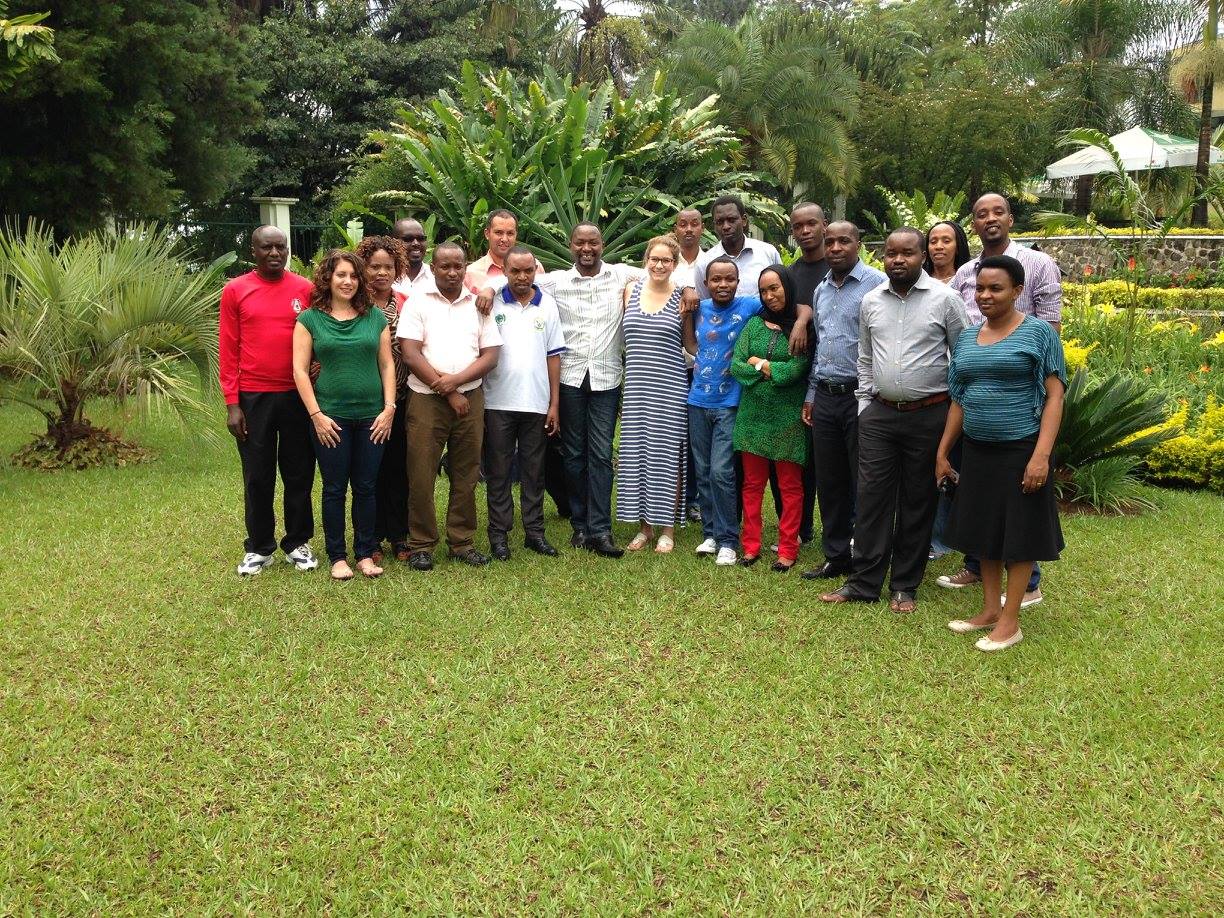 You never know where a Scarsdale education will take you. In just the past 12 months, Isabel Brodsky from the SHS Class of 2007 has traversed the globe and landed in hotspots like Rwanda, Ethiopia and Bangladesh where she works as an advisor to a company that implements government funded programs to improve lives in some of the world's poorest countries. How did she select this field and what has she learned? She outlines her journey here:
You never know where a Scarsdale education will take you. In just the past 12 months, Isabel Brodsky from the SHS Class of 2007 has traversed the globe and landed in hotspots like Rwanda, Ethiopia and Bangladesh where she works as an advisor to a company that implements government funded programs to improve lives in some of the world's poorest countries. How did she select this field and what has she learned? She outlines her journey here:
Tell us about your background. When did you graduate from high school, where did you go to college and graduate school --and what did you study? I graduated from Scarsdale High School in 2007. I went to Colgate University in Hamilton, NY where I majored in political science and minored in African Studies. I graduated from Colgate in 2011 and immediately went to get an M.A. from Fordham University in International Political Economy and Development with a concentration in International Development Studies. Since graduating from Fordham I have worked at Palladium in Washington DC.
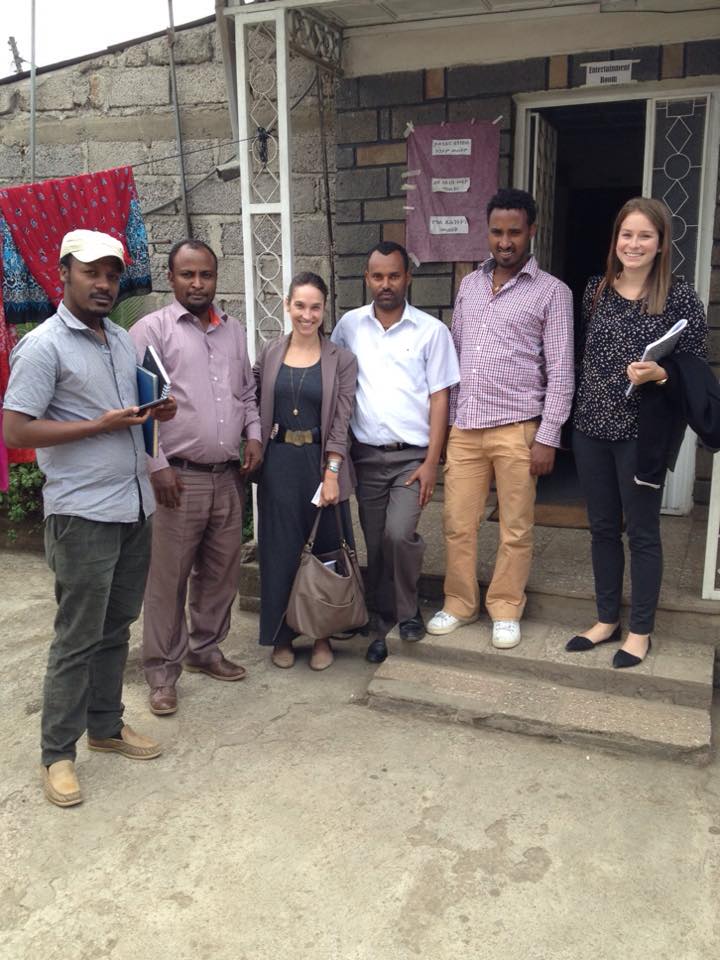 How did you become interested in the field? Who or what influenced you? I've always been interested in human rights issues, ever since middle school when we had a unit on human rights in my 7th grade history class with Ms. Wixted. In college my freshman year I took a class called Intro to Peace and Conflict Studies with a professor I really loved. She had worked in global health and I found her and the class to be really interesting. I think that is when I realized that I could work in this field as a career. I studied abroad in Dakar, Senegal during the summer between my sophomore and junior years of college and had an internship with two local NGOs and took classes on West African history and politics and Wolof (the local language of Senegal). That was my first experience going to a developing country and it motivated me to continue to pursue a career in global health and international development.
How did you become interested in the field? Who or what influenced you? I've always been interested in human rights issues, ever since middle school when we had a unit on human rights in my 7th grade history class with Ms. Wixted. In college my freshman year I took a class called Intro to Peace and Conflict Studies with a professor I really loved. She had worked in global health and I found her and the class to be really interesting. I think that is when I realized that I could work in this field as a career. I studied abroad in Dakar, Senegal during the summer between my sophomore and junior years of college and had an internship with two local NGOs and took classes on West African history and politics and Wolof (the local language of Senegal). That was my first experience going to a developing country and it motivated me to continue to pursue a career in global health and international development.
Explain the mission of Palladium and what you do there. Palladium is a consulting firm with a large focus on international development. Its mission is to deliver innovative solutions that create a positive impact and improve the quality of people's lives around the world. Most of Palladium's work is in the form of contracts with donor organizations such as USAID. I am a Data Use Advisor and work mainly on a USAID-funded project called MEASURE Evaluation, which helps to strengthen countries' health information systems. My work focuses on helping ministries of health, national AIDS programs, and other government entities to better collect, analyze, interpret, and use their health data to improve evidence-based decision making. Often times decisions are made arbitrarily without data to back them up. It's important to build the capacity of decision makers to use data to make decisions.
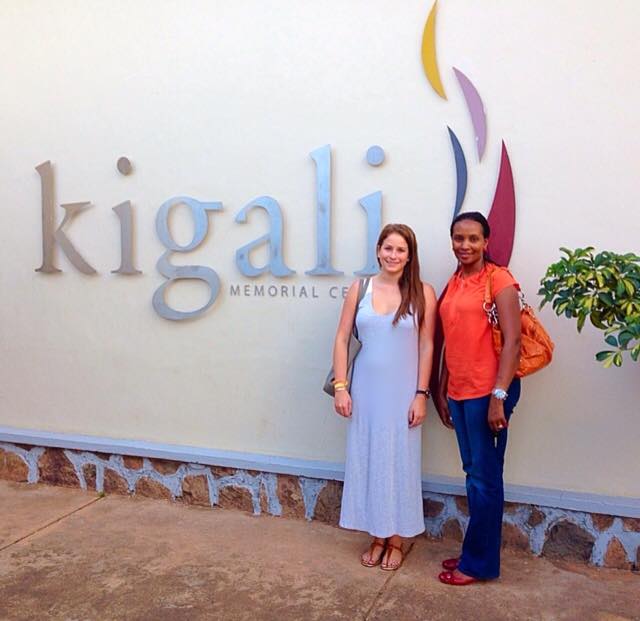 Where have you travelled in the last year? This year was crazy! I traveled to Rwanda twice, to Tanzania twice, to South Africa three times, to Ethiopia, and to Bangladesh. My next trip is going to be to Cote d'Ivoire next month, which will be exciting because I have never been there and I haven't been back to West Africa since I went to Senegal back in 2009.
Where have you travelled in the last year? This year was crazy! I traveled to Rwanda twice, to Tanzania twice, to South Africa three times, to Ethiopia, and to Bangladesh. My next trip is going to be to Cote d'Ivoire next month, which will be exciting because I have never been there and I haven't been back to West Africa since I went to Senegal back in 2009.
What do you do when you visit these countries? Many of the trips I do are to facilitate and participate in workshops or trainings. My most recent trip was in Tanzania, where we were pilot testing a one week curriculum that we developed on a software system called District Health Information Systems (DHIS2), which enables countries to collect all of their data electronically and manage, analyze, interpret, and visualize it within the software. We want to encourage people that using data is a critical part of their jobs, and also that there are user friendly tools out there to help them to do so. On many of the trips that I go on we also train people on GIS mapping software. Geographic targeting is becoming increasingly important, particularly in HIV, as the disease does not affect populations uniformly and funding is waning. Understanding where people are most affected by HIV can allow decision makers to be more targeted with where they allocate resources, plan programs, etc. We have been training staff on how to make maps of the distribution of HIV with software and also how to analyze these maps and use them in decision making and planning.
What are some of the things that surprised you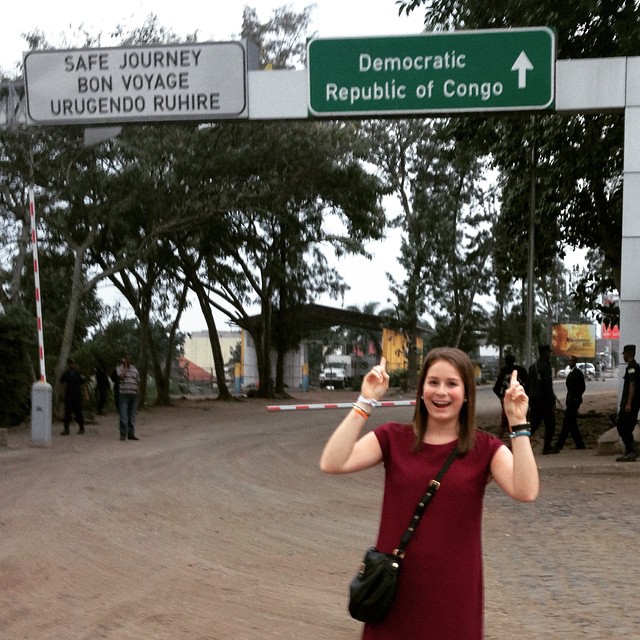 about visiting these countries? More than anything I'm just always struck by how beautiful all of the places I go to are and how nice and warm and friendly everyone is. I think that people have visions in their head for what they expect developing countries to be like, and some of them are true, but some of them are really off. I remember sending a picture to my family of Kigali (the capital of Rwanda) the first time I went there and they were so shocked by how beautiful it was. It shouldn't come as a surprise, but it often does.
about visiting these countries? More than anything I'm just always struck by how beautiful all of the places I go to are and how nice and warm and friendly everyone is. I think that people have visions in their head for what they expect developing countries to be like, and some of them are true, but some of them are really off. I remember sending a picture to my family of Kigali (the capital of Rwanda) the first time I went there and they were so shocked by how beautiful it was. It shouldn't come as a surprise, but it often does.
What are some common misconceptions Americans have about world health issues? That's a tough question. I think that people tend to focus on what's in the news and forget about world health issues quickly. For example, for months everyone was very focused on Ebola (rightly so) but also was misinformed about the disease and then quickly forgot about it. At the same time, there is little knowledge about many other pervasive health issues occurring around the world that don't get the same type of attention. Maybe if these issues were better known and understood there could be more support and funding for them.
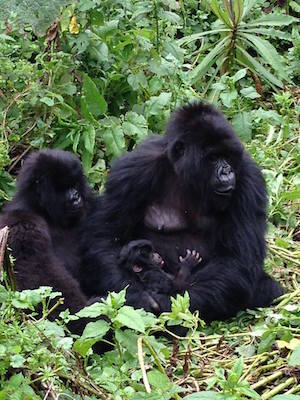 Can you tell us about any interesting experiences you have had while traveling? One of the most memorable experiences I've had was in the winter in Rwanda. There is a place in Rwanda called Volcanoes National Park, which is one of two places in the world where you can see mountain gorillas. I did a day trek in the park where you hike for hours through the rain forest with guides searching for the gorillas. Once you find them you have one hour to observe them in their natural habitat and then you have to leave. They do an amazing job with conservation and with ensuring that the gorillas don't get too used to being around humans. The best part of the entire experience was that one of the mother gorillas in the family had a newborn baby! It is definitely something I will never forget and probably never would have done otherwise.
Can you tell us about any interesting experiences you have had while traveling? One of the most memorable experiences I've had was in the winter in Rwanda. There is a place in Rwanda called Volcanoes National Park, which is one of two places in the world where you can see mountain gorillas. I did a day trek in the park where you hike for hours through the rain forest with guides searching for the gorillas. Once you find them you have one hour to observe them in their natural habitat and then you have to leave. They do an amazing job with conservation and with ensuring that the gorillas don't get too used to being around humans. The best part of the entire experience was that one of the mother gorillas in the family had a newborn baby! It is definitely something I will never forget and probably never would have done otherwise.
Is the work even more challenging because you are female? I think it is more challenging because I am young than because I am female. I think that it can at times be more difficult to be taken seriously because people may question by age and my knowledge and experience; however, I think I have also been able to use it to my advantage in difficult situations. Sometimes people are more willing to work with you and negotiate with you when they underestimate you or don't find you to be too intimidating.
Where do you see yourself going with this in the future? I hope to continue in this field and to ultimately develop an expertise in a disease area. One of my main interests that I hope to grow more professionally in is malaria and neglected tropical diseases. Ultimately I see myself becoming an expert in my field of choice and continuing to work with governments, people, and countries to improve health and livelihoods. Sometimes I think I will go back to school and get a PhD, but I'll just have to wait and see!
Any advice to students who may wish to pursue a similar career path? One of the most valuable things to have is field experience in a developing country. I suggest students seize opportunities to travel and work on the ground. It gives you a completely different perspective on this type of work and ultimately is very appealing to future employers. My other piece of advice is to find organizations that truly interest you and try to get a foot in the door at them however you can. I started off at my company in an administrative position and was able to advance to a more technical role. International development and global health are difficult fields to break into but once you do you will find a community of some of the smartest people you will ever meet and work with.






